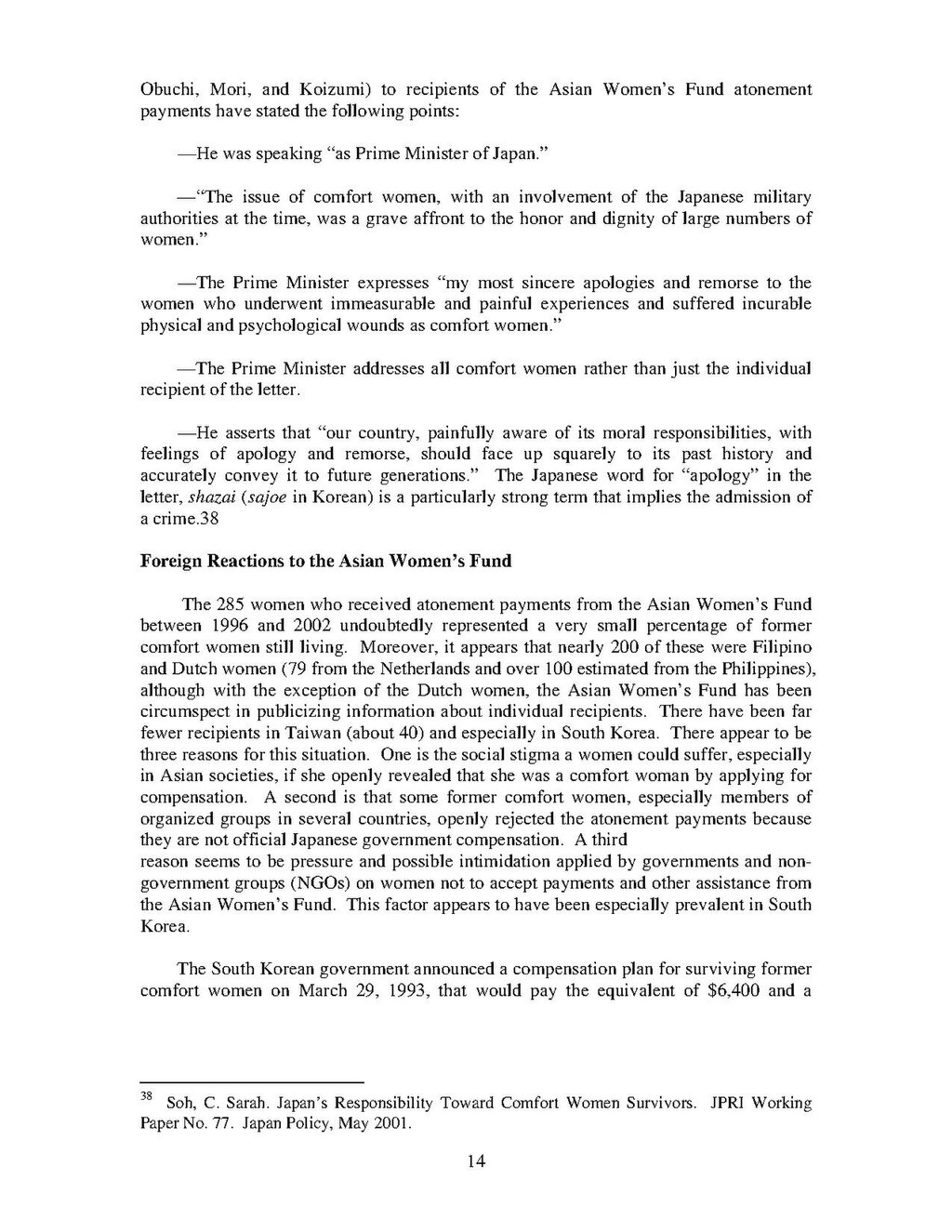Obuchi, Mori, and Koizumi) to recipients of the Asian Women’s Fund atonement payments have stated the following points:
—He was speaking “as Prime Minister of Japan.”
—“The issue of comfort women, with an involvement of the Japanese military authorities at the time, was a grave affront to the honor and dignity of large numbers of women.”
—The Prime Minister expresses “my most sincere apologies and remorse to the women who underwent immeasurable and painful experiences and suffered incurable physical and psychological wounds as comfort women.”
—The Prime Minister addresses all comfort women rather than just the individual recipient of the letter.
—He asserts that “our country, painfully aware of its moral responsibilities, with feelings of apology and remorse, should face up squarely to its past history and accurately convey it to future generations.” The Japanese word for “apology” in the letter, shazai (sajoe in Korean) is a particularly strong term that implies the admission of a crime.[1]
Foreign Reactions to the Asian Women’s Fund
The 285 women who received atonement payments from the Asian Women’s Fund between 1996 and 2002 undoubtedly represented a very small percentage of former comfort women still living. Moreover, it appears that nearly 200 of these were Filipino and Dutch women (79 from the Netherlands and over 100 estimated from the Philippines), although with the exception of the Dutch women, the Asian Women’s Fund has been circumspect in publicizing information about individual recipients. There have been far fewer recipients in Taiwan (about 40) and especially in South Korea. There appear to be three reasons for this situation. One is the social stigma a women could suffer, especially in Asian societies, if she openly revealed that she was a comfort woman by applying for compensation. A second is that some former comfort women, especially members of organized groups in several countries, openly rejected the atonement payments because they are not official Japanese government compensation. A third reason seems to be pressure and possible intimidation applied by governments and non-government groups (NGOs) on women not to accept payments and other assistance from the Asian Women’s Fund. This factor appears to have been especially prevalent in South Korea.
The South Korean government announced a compensation plan for surviving former comfort women on March 29, 1993, that would pay the equivalent of $6,400 and a
- ↑ Soh, C. Sarah. Japan’s Responsibility Toward Comfort Women Survivors. JPRI Working Paper No. 77. Japan Policy, May 2001.
14
